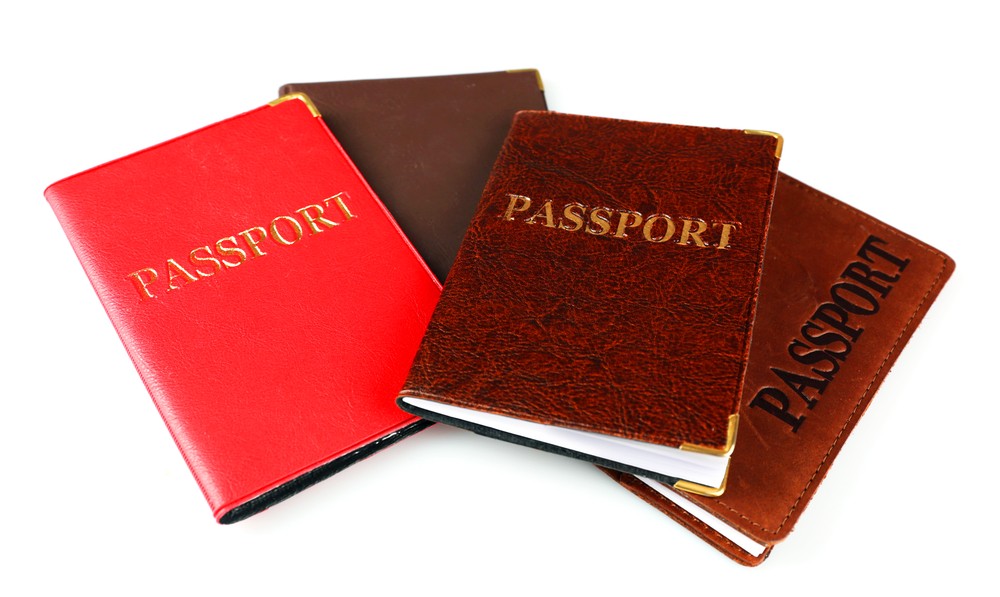ISIS is everywhere: Is it time for a global passport?
CNN |

By Parag Khanna
At least four of the eight attackers in November's terrorist attacks in Paris were French citizens.
While anti-immigrant European politicians are using the attacks as an excuse to restrict the current refugee inflow, the fact is that stemming the flow of migrants won't diminish the pool of home-grown radicals.
Indeed, an estimated 30,000 foreigners have flocked to Syria to join the battle there. Both male and female youths, of dozens of nationalities and diverse ethnicities, have been lured by the visions of paradise or promises of adventure made first by al Qaeda and now ISIS.
Since many are Caucasian or African, they don't fit the stereotypes long used by customs and border agents who have focused on screening Arabs and Pakistanis. Furthermore, Europe's Schengen Agreement and America's Global Entry programs make things easier for citizens of OECD and associated countries to move across each other's borders.
This may prove to be the opposite of what these governments want these days. Indeed, the U.S. Congress is now considering an overhaul the visa waiver program through which nearly 20 million people enter the US each year.
The bottom line is that anyone can be ISIS. We therefore need an approach to securing civilized societies that doesn't allow individuals to hide behind the cloak of Western passports. Terrorism is more than ever a borderless problem requiring cross-border solutions.
The time has come for a "global passport," a parallel digital certification of a person's identity, background, criminal record, travel history, and other details. The digital record would be regularly updated based on databases from airlines, customs agencies, banks and other sources, and could be managed by an independent international authority such as Interpol, or a network system resembling SWIFT or IATA. This could be the ultimate calling for start-ups such as BitNation, which has already begun issuing virtual IDs -- effectively digital passports -- using blockchain technology.
For those willing to submit the required documentation, this would effectively be a universal visa to enter participating countries. But in the long run, a global passport will do much more than make it more difficult for terrorists to use Western passports to seamlessly circulate and sow terror. It will also increase travel and economic opportunities for citizens of developing nations, advance secure digital identification on a worldwide basis, and enable post-national identities to flourish. There is therefore great opportunity in this crisis.
A passport is what you make it
Throughout the 19th century, people moved relatively freely around the world. Passports were seen as relics of feudalism. Since World War I, however, migration has become heavily bureaucratized, with border checkpoints, visa requirements, quotas and onerous fees imposed behind bullet-proof glass embassy counters by stern consular officials.
But in a world where nefarious ideologies can spread by Twitter or YouTube, a passport tells us ever-less about a person's true beliefs. Even ISIS, a terrorist state, has issued its own passports. Passports provide the illusion of credibility, but today faked passports are being sold to refugees and terrorists alike to help them sneak into Western nations.
In the wake of the Paris attacks -- and the sadly inevitable future large-scale terrorist violence that will again occur as Arab states disintegrate -- we could very soon witness major retrenchment from the increasingly free mobility that Western passport holders have enjoyed to each other's countries. But putting up walls and borders punishes all of us -- tourists and refugees alike -- rather than isolating the relatively few truly dangerous individuals who need to be apprehended.
Evolution over regression
A global passport is more than a way to stay ahead of nimble terrorists of all stripes.
We have an opportunity to solve an even deeper problem: The prison of nationality on the majority of the world population that does not have the luxury of visa-free travel around the world. By divorcing mobility from nationality, we accord people the right to travel based on their individual merit rather than locked-in biases their countries face for being poor or at war.
A global passport is a radical departure from centuries of sovereign privilege -- states dictating individual identity and the right to mobility -- but governments can also collaborate to bring about a system in which the billions of individuals whose freer mobility could benefit the world economy are empowered rather than restrained.
Mobility is a human right. With new airline routes, railways, highways and other infrastructures being laid down across borders ever year, we are destined to become a connected civilization. More than one billion people now cross borders every year, and approximately 250 million people are "expats"living outside their country of origin -- both far higher numbers than ever in history. The demographic imbalances between labor rich developing countries and labor poor wealthy ones—especially in Europe—will persist, meaning migration should rightly continue as a major economic force.
ISIS is not going away. Thousands of Western passport holders from America to France to Australia have bought one-way tickets to jihad -- except many are being trained to return to the West to foment terror. Judging people by their passports won't be enough to stop them.